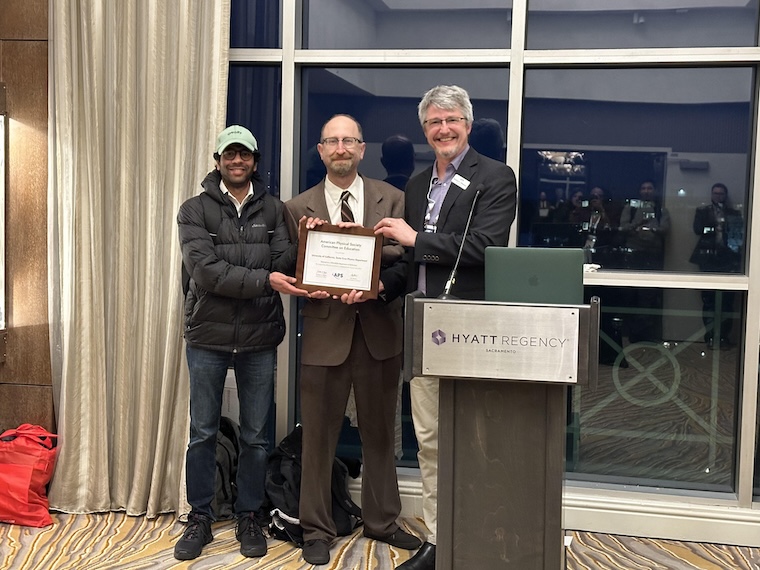The Physics Department has been honored by the American Physical Society (APS) for improving undergraduate physics education. At its April meeting, the APS Committee on Education announced UC Santa Cruz as one of just three universities nationwide whose physics departments share in this year’s award.
In describing its efforts to APS, the Physics Department cited its success in maintaining strong enrollment despite having a relatively small faculty. And rather than focusing on growth, over the past decade, the department has improved retention and four-year graduation rates by identifying and addressing barriers in the curriculum and course schedules.
According to the department, four-year graduation rates have increased from 37% for students entering in 2013 and 2014, to an average of 62% for students entering from 2015 to 2018. Furthermore, over the past four years, the department has introduced a series of new initiatives to to address equity gaps and improve the undergraduate experience—from first quarter to graduation.
These include:
- advising initiatives to increase student engagement with faculty as mentors and research advisers
- Physics 2: The Physicist’s Toolbox – a course for first-year students with less experience in advanced math and physics
- Physics 1A and 1B: Physics for Everyone – highly popular courses for non-majors in search of engaging general-education subjects more substantial than a routine survey of conceptual physics
- new electives adapted to student interest and current directions in physics research and applications, including Physics 137: Advanced Optics Laboratory, Physics 150: Quantum Computing, and Physics 152: Physics and Machine Learning.
Lastly, the department has created new degree tracks in response to student interest: a computational-physics concentration within the applied physics B.S. program, a quantum-computation concentration (approved for Fall 2024), and a recommended path within applied physics for pre-aerospace students.
See all of this year’s winners of the APS Improving Undergraduate Physics Education Award.



